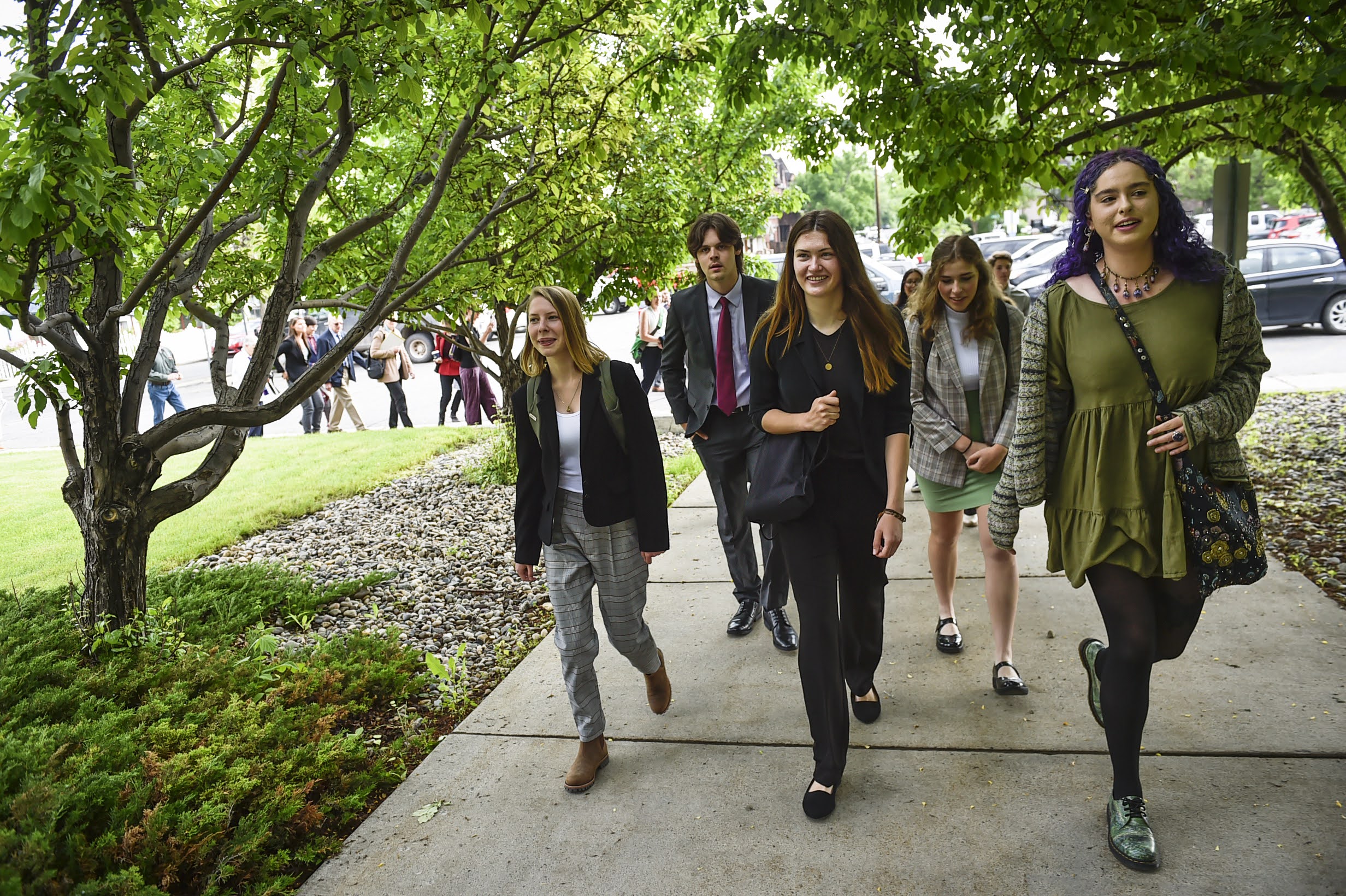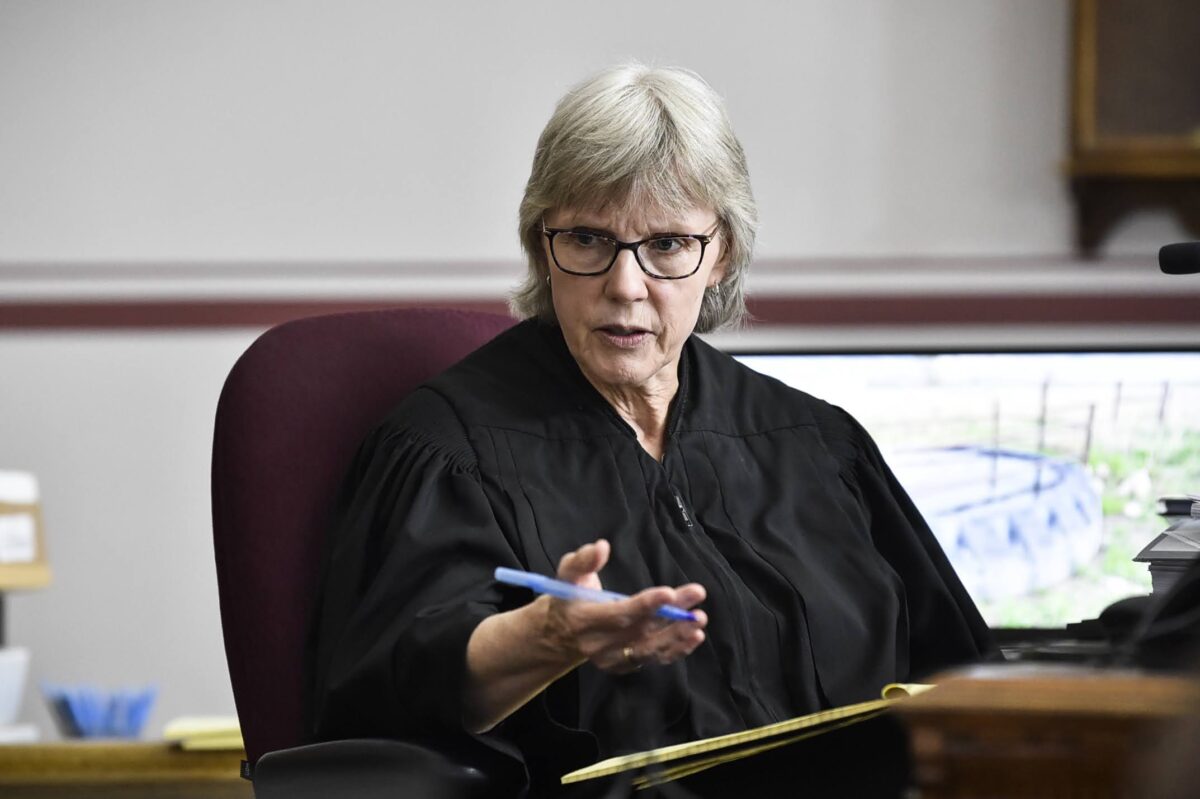Plaintiffs File Opening Brief in Supreme Court Appeal of Held Lawsuit
Lawyers in the youth-led constitutional climate suit are confident the trial record will hold up in Montana’s highest court
By Micah Drew
Lawyers for the 16 youth plaintiffs in the Held v. Montana lawsuit filed their first brief before the Montana Supreme Court on Wednesday, setting the stage for the next phase of ongoing litigation over the state’s right to a “clean and healthful environment.”
“At trial we presented indisputable evidence and compelling testimony of the ways in which Montana is contributing to the climate crisis and harming its people,” lead plaintiff Rikki Held said in a statement. “We achieved a landmark victory and now the state is failing to make a sound legal argument in its appeal while still actively fighting against our right to a livable planet.”
The plaintiffs’ 98-page brief argues that there is no evidence of a compelling state interest in ignoring greenhouse gas pollution and climate change during environmental reviews, and that the District Court decision correctly concluded that the laws at the heart of the suit are unconstitutional.
“Contrary to the State’s unsubstantiated claims, this case is not about the impacts of climate change writ large, but rather about how Montana’s environment and natural resources, and Montana’s children and youth, are being harmed by Defendants’ actions that cause and contribute to climate harms within Montana,” according to the brief.
In August, Lewis and Clark County District Court Judge Kathy Seeley issued her ruling in the nation’s first constitutional climate change trial, declaring that Montanans have a “fundamental constitutional right to a clean and healthful environment.” Her 103-page order overturned two laws enacted by the state’s Legislature in 2023 that made changes to the Montana Environmental Policy Act (MEPA) by prohibiting state agencies from considering greenhouse gas emissions and climate change impacts while conducting environmental reviews.

The State of Montana, Governor Greg Gianforte and several state agencies appealed last summer’s District Court ruling and filed their own opening briefs last month.
In their opening brief, the state argued that the plaintiffs failed to prove a direct link between declaring MEPA unconstitutional and addressing their stated mental and physical injuries. In addition, the defendants reiterated claims made during trial that MEPA is a procedural, not a permitting statute, and is not directly related to the approval of fossil fuel energy projects.
Responding in their March 13 filing, attorneys for the youth stated “there is no dispute that Defendants control Montana’s energy system and have exercised that control to consistently approve fossil fuel projects … which could not operate without undergoing MEPA review and obtaining authorization from Defendants [and] are responsible for globally significant greenhouse gas emissions”
The youth plaintiffs, now between the ages of 7 and 23, testified during a seven-day bench trial in Helena last summer alongside a dozen expert witnesses. While there will be no further testimony during the appeal process, many plaintiffs remain actively involved in the suit.
“I first joined this case when I was just 14,” plaintiff Eva Lighthiser said in a statement. “Today, on my 18th birthday, Montanans’ wellbeing and access to a healthy environment is worsening, while Defendants repeatedly attempt to bog us down, avoid accountability for their actions, and continue with business as usual.”
In addition to personal testimony provided by the youth, numerous climate scientists, ecologists, doctors and policy experts testified during trial about the effects of climate change on Montana and the state’s youngest residents, which attorneys say created a scientifically sound legal framework that is above reproach.
“Underlying the District Court’s legal conclusions are 289 factual findings based on an extensive evidentiary record,” the brief states. “The uncontroverted evidence adduced at trial established that [greenhouse gas] pollution and climate change are fundamentally altering, degrading, and depleting Montana’s climate, environment, and natural resources – resources essential to Plaintiffs’ health, safety, dignity, and well-being.”
Nate Bellinger, a senior attorney with Our Children’s Trust, one of the firms representing the plaintiffs, said the court system exists to protect constitutional rights when violated by other branches of government despite the state’s continued insistence that the District Court ruling represented judicial overreach.
“We are confident that after the Supreme Court reviews the extensive trial record, including the testimony from plaintiffs and experts, it will come to the same conclusion and uphold the District Court’s ruling.”
Several amicus briefs in support of the plaintiffs will be filed over the next few weeks.